October 2024
Welcome to my October blog.
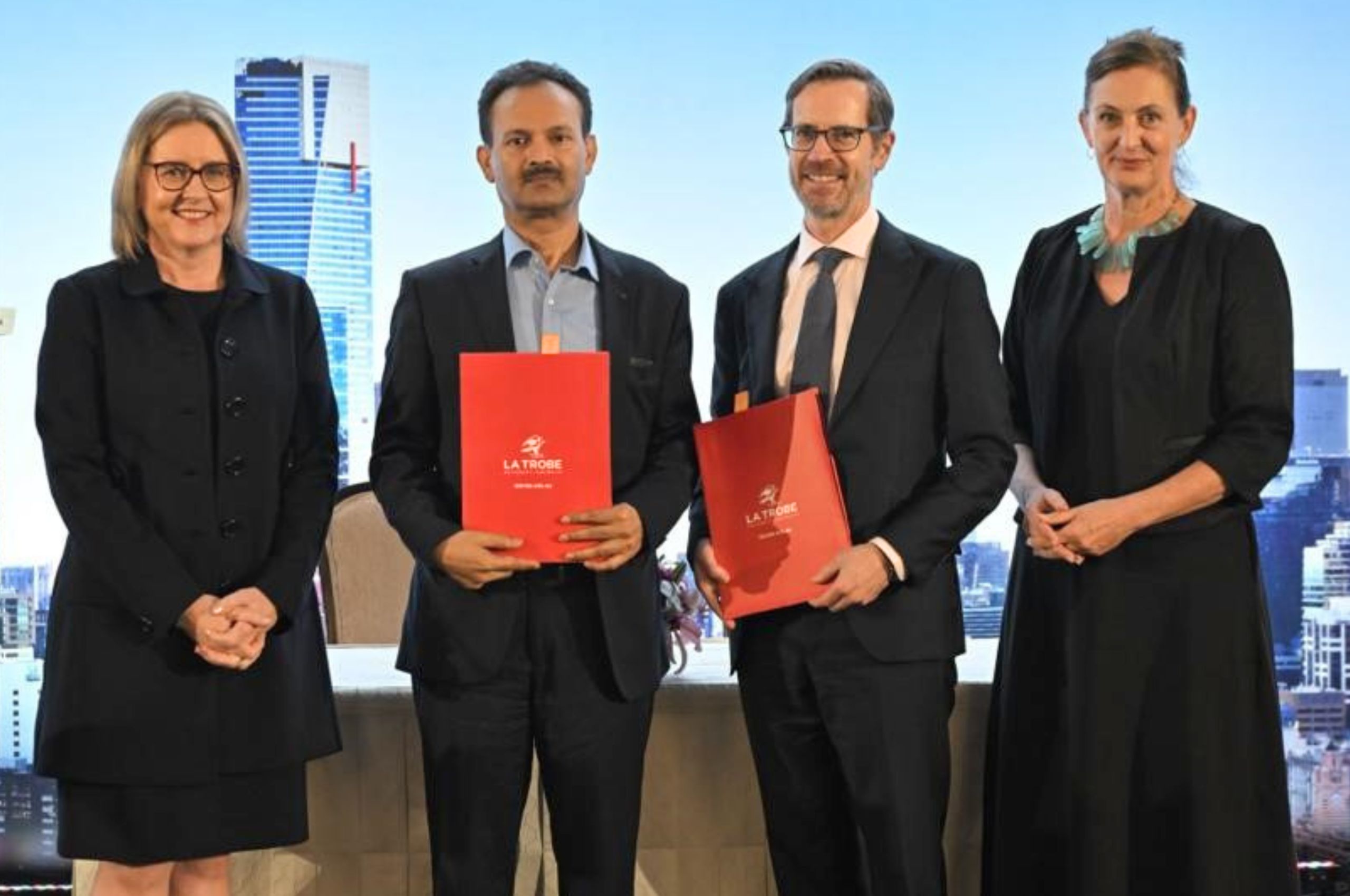
10 October 2024
I am delighted with the excellent news announced yesterday about our position in the latest Times Higher Education (THE) World University Rankings. Being ranked in the 251-300 band for a third consecutive year is a terrific result. This strong ranking performance will greatly assist our recruitment of international students next year, which is so essential to our recovery and to nurturing the diversity of our learning community. Well done to Alistair Duncan and the team in the Research Office, as well as academic and professional staff across the University – your concerted efforts have helped to once again demonstrate La Trobe’s excellence on a global stage.
While international rankings are only one measure of institutional quality and performance, they are nonetheless regarded as a significant gauge for comparing universities. I’m confident that La Trobe will continue its upward trajectory in our global position. The consolidation of our position in the THE ranking follows our best-ever result of 217 in the QS World University Rankings, which was announced in June.
The new Research & Innovation 2030 plan being developed by Chris Pakes and his team will help to guide the next phase of our work. It sets actions under pillars addressing workforce development, research investment, and global, industry and community engagement; and aims to develop La Trobe’s areas of capability so that we can continue to address societal need in Australia and beyond.
Our research impact was on show during the recent visit to India by the Victorian Premier and La Trobe alum, the Honourable Jacinta Allan. I was pleased to participate in the Victorian Government’s higher education delegation led by our Chancellor John Brumby.
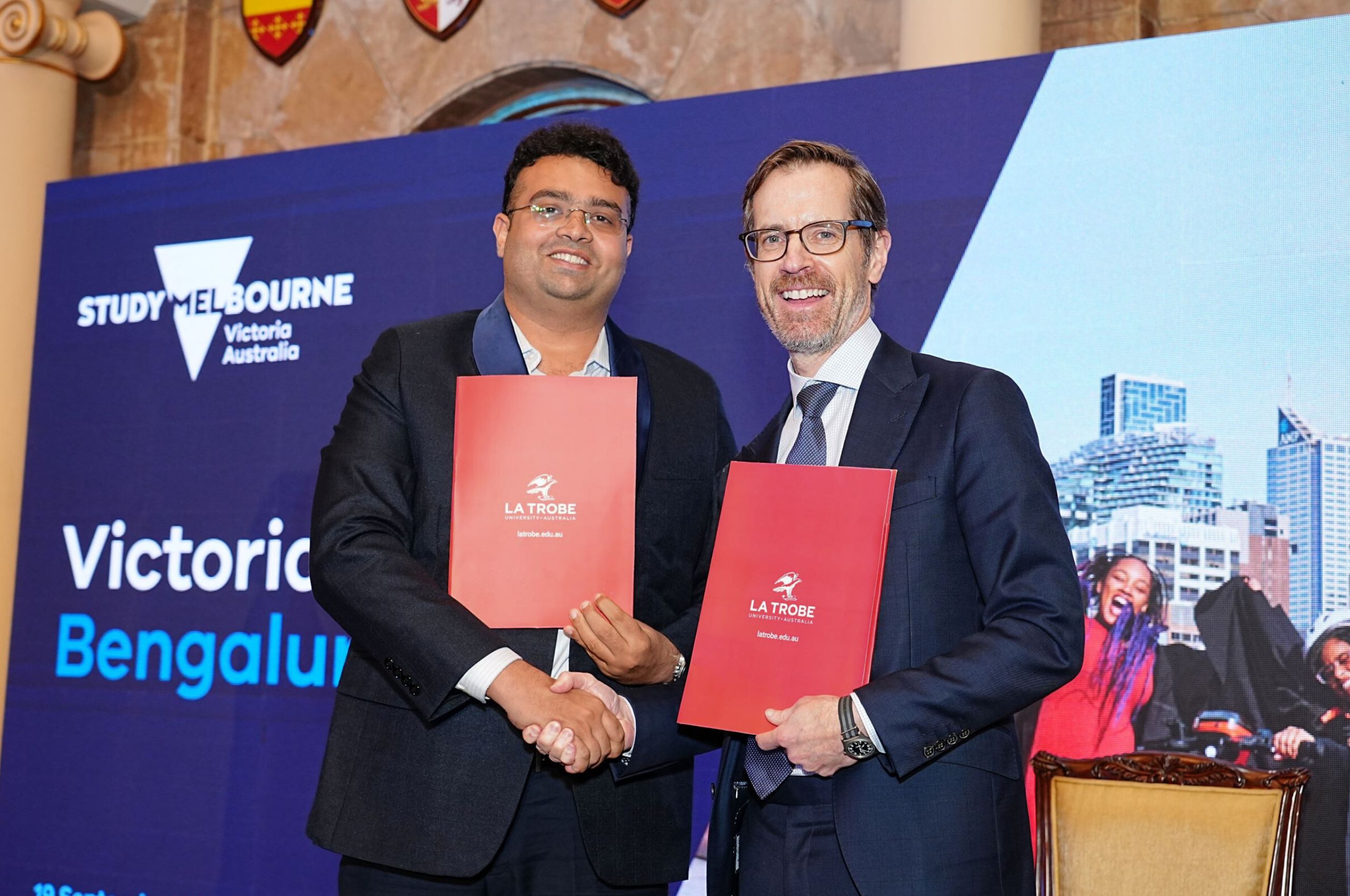
During the trip, I signed a Letter of Intent with the Biotechnology Industry Research Assistance Council, an Indian Government agency in New Delhi that supports biotech innovation. We have agreed to work with the Council to develop innovation corridors between India and Melbourne to support collaborative research and entrepreneurship. I also signed an MoU with the Bangalore Bioinnovation Centre in the Indian state of Karnataka, which will establish a Bio Innovation Corridor to support sharing of biotechnology skills, infrastructure, and capabilities and pilot novel applications across human health, medical, food, and AgTech projects.
Such innovation corridors exemplify the kind of research commercialisation and industry collaboration at the heart of our Research & Innovation 2030 plan. I am delighted that we have got things off to a good start in India.
Finally, you will be aware that in laying the necessary foundations for future growth and ensuring we are able to withstand future pressures, we have been applying a laser focus to areas that will deliver growth and impact in the longer term. This has meant that over recent months we have been reviewing some of our academic and operational activities and priorities, with implementation of these changes coming into effect now that staff consultation has concluded.
While this is designed to establish a basis for future success, I am aware that change can be challenging. I thank you for your patience and commitment to La Trobe during this time and encourage you and your teams to seek any support needed through our staff wellbeing services.
I’d like now to mention a few recent achievements and activities from across the University.
Evidence and impact
As I reported in my August blog, Federal Education Minister Jason Clare launched the expansion of La Trobe’s award-winning teacher education pathway Nexus to NSW primary schools at an event in Sydney on 26 July. Nexus has been incredibly successful in preparing teachers to work in rural, regional, and hard to staff schools – and the program has now received an additional $7.4 million in Government funding to extend to secondary teaching in NSW. These projects are supporting primary and secondary schools in NSW that are facing critical staffing shortages.
Congratulations to Joanna Barbousas, Miriam Tanti, and the team in our School of Education on the continued success of their evidence-based teacher education programs.
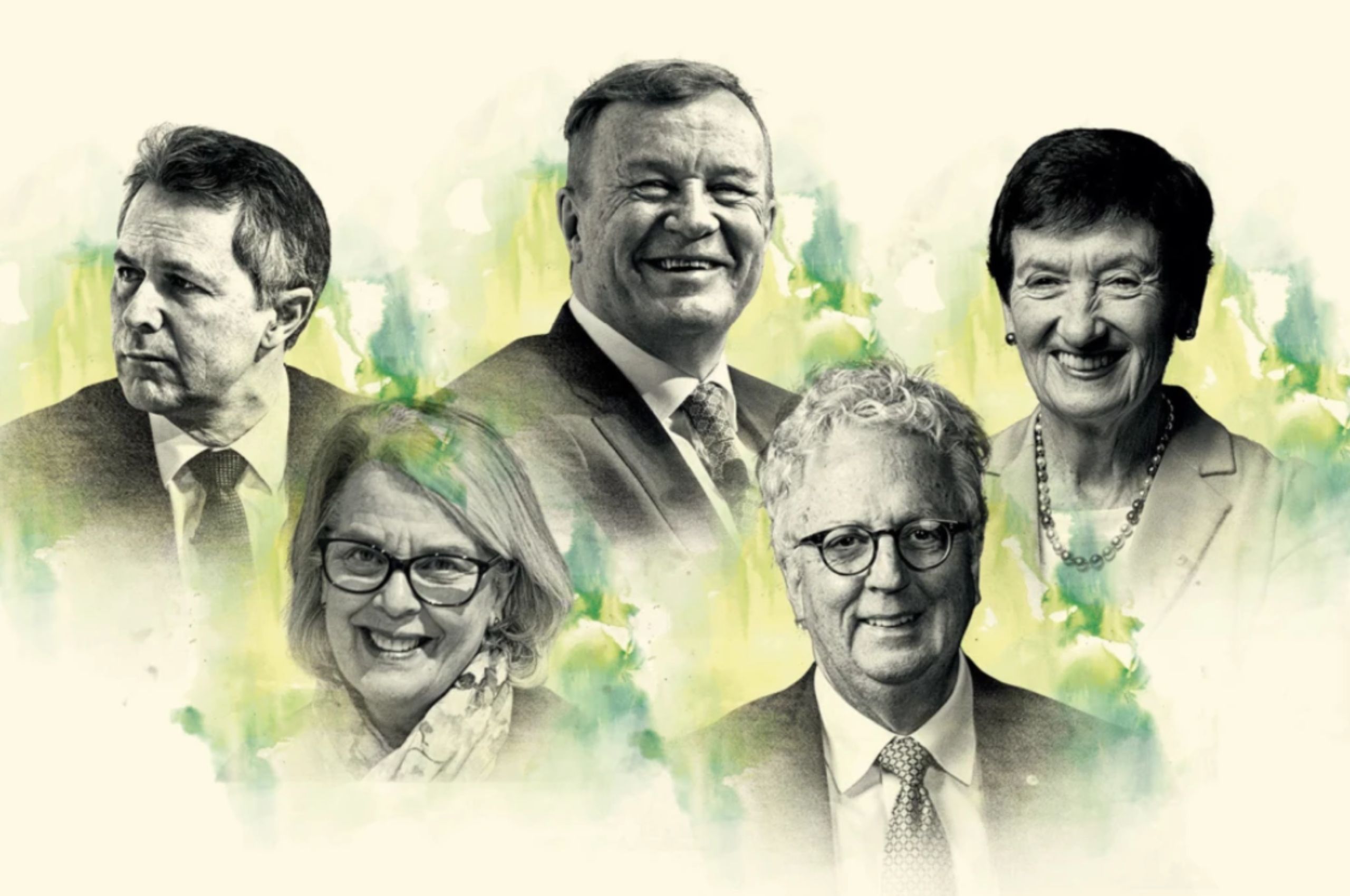
Making a difference
Congratulations to Pam Snow from the School of Education on being named one of Australia’s five most powerful people in education in 2024 by the Australian Financial Review. Pam was second on the list behind Education Minister Jason Clare and was recognised for co-founding the Science of Language and Reading (SOLAR) Lab with Tanya Serry, who is also based in our School of Education.
More than 12,000 teachers and allied health professionals have enrolled in SOLAR Lab short courses, which are designed to advance knowledge and skills in word de-coding and language comprehension. The program has had a huge impact on education policy and practice by promoting evidence-based approaches to literacy education. Its influence is evident in the Victorian Government's new explicit teaching approach, which embeds systematic synthetic phonics into every classroom.
Congratulations to Pam on this much-deserved recognition of her impactful research. As the AFR has noted, “there is a grassroots revolution bubbling away in schools across Australia and [Pam] Snow is in no small way one of the driving forces behind it."
Winning words
Two books published by the La Trobe University Press have been recognised with major literary prizes.
Ryan Cropp’s biography of Donald Horne won the 2024 Prime Minister’s Literary Award for Australian History after being shortlisted for several other prizes including the 2024 National Biography Award; and Alecia Simmonds’ Courting: An Intimate History of Love and the Law won the Australian History Prize in the 2024 NSW Premier’s History Awards, as well as the Australian Historical Association’s 2024 WK Hancock Prize and the 2024 Australian Legal Research Award for a Book.
Congratulations to these authors and our publishing partners at Black Inc. on the continued success of the La Trobe University Press. The next book being published by the Press is Let's Tax Carbon: And Other Ideas for a Better Australia by economist Ross Garnaut, who has written some of the most successful books we’ve published to date. Let’s Tax Carbon extends ideas Ross developed in his best-selling 2019 book Superpower: Australia's Low-Carbon Opportunity and argues that a levy on big polluters can help fund Australia to become a carbon-free energy generator.
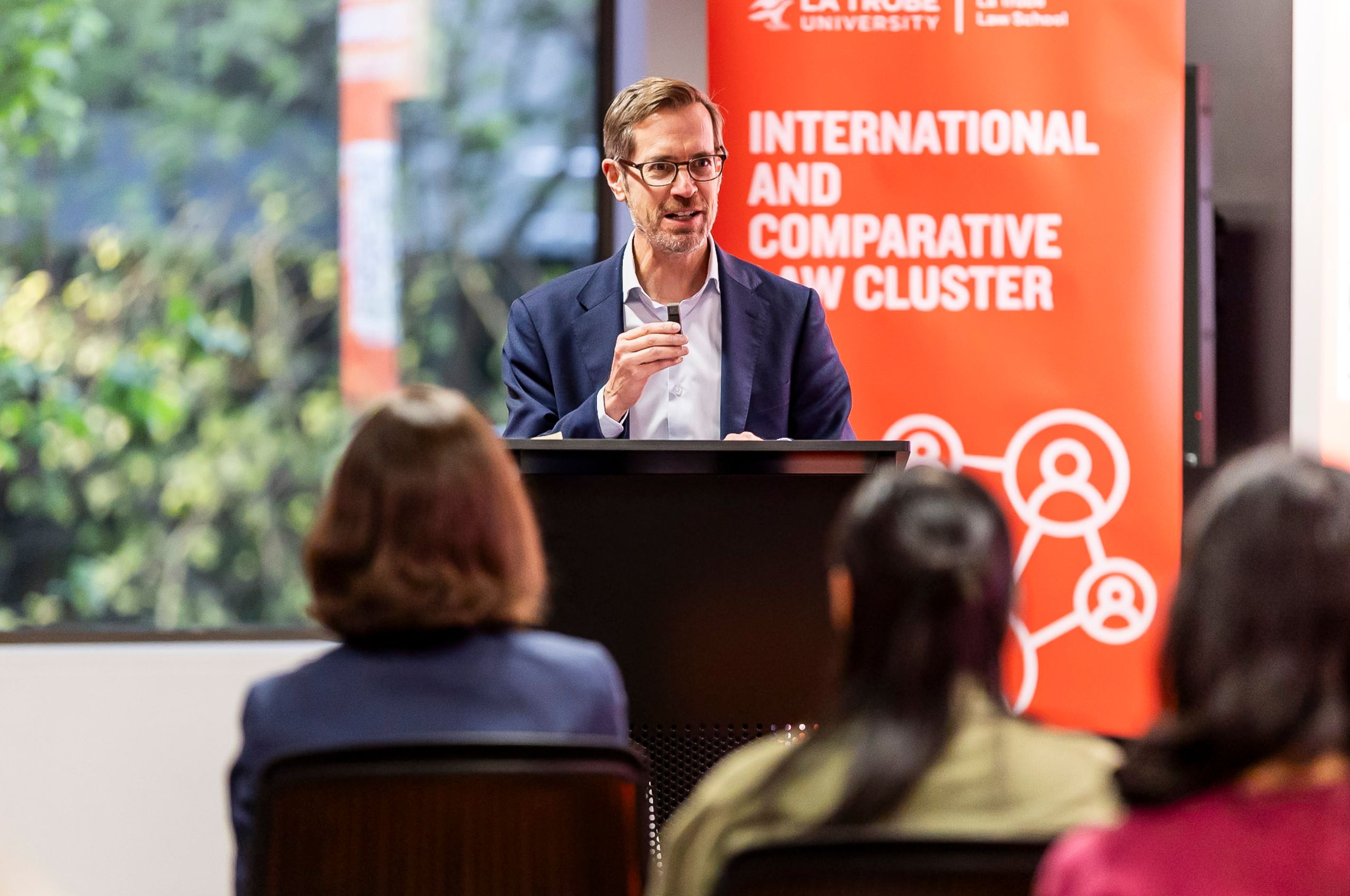
Going global
I was delighted to say a few words at the La Trobe Law School International and Comparative Law Cluster’s inaugural annual lecture delivered last week by Professor Surya Deva, the United Nations Special Rapporteur on the Right to Development. The lecture is part of the Cluster’s mission to examine the role of international law in shaping the global order and driving positive social change. Professor Deva made a compelling argument for a model of “planet-centred participatory development”.
Well done to Maria Elander and colleagues in the International and Comparative Law Cluster on developing a program that encapsulates La Trobe’s commitment to social justice and advancing impactful scholarship that addresses the UN Sustainable Development Goals. I look forward to the next two annual lectures, which will also be delivered by UN Special Rapporteurs.

Half a century and going strong
I’m delighted to be joining the celebrations in Bendigo tomorrow to mark 50 years of nursing education at La Trobe.
We’ve educated thousands of nurses over the last five decades, who are known for their dedication, compassion and innovation. And we’re building on their legacy of impact by continuing to address health workforce shortages facing communities across Victoria, particularly in rural and regional areas. The University is investing more than $50 million to redevelop the nursing, midwifery, and allied health facilities across our regional campuses. This means we can support many more students who want to follow in the footsteps of people like our pioneering nursing alumna Patricia ‘Sister Pat’ McPherson.
For those in Melbourne, you can also register to attend the 50th anniversary celebrations being held at the John Scott Meeting House on the Bundoora campus next Friday 18 October.
Upcoming events
There are some interesting events being held across our campuses over the next few weeks.
The Industry Engagement team has limited places available in the Cruxes Innovation Base Program that helps researchers create impact by developing a toolkit to identify and engage with potential industry, government, and community partners and recognise how their research can help solve partner’s problems.
Renowned Australian National University historian Frank Bongiorno, who is the author of the brilliant La Trobe University Press book Dreamers and Schemers: A Political History of Australia, is delivering the Sir John Quick lecture in Bendigo next Thursday 17 October. The lecture - A Living Democracy: How Well Has Australian Democracy Responded to a Changing Society? - will explore dualities in Australian democracy past and present. You can reserve your spot here.
In Melbourne on 17 October, La Trobe experts will present a policy forum at our City campus to examine issues affecting job quality for the Australian aged care workforce. Jodi Oakman, Raelene Wilding, and Deirdre Fetherstonhaugh will discuss their collaboration with Professor Phil Taylor from the University of Warwick and consider what job quality means within the context of aged care and what changes are needed to improve workforce sustainability. You can register for the forum here.
The final Launches at the Library event for the year is being held on 22 October at our Bundoora campus and will celebrate two remarkable new works of history by La Trobe authors that explore issues including settler-colonialism, missionary history, race and religion, and sovereignty.
The event will launch Enlightened Aboriginal Futures by La Trobe’s Katherine Elllinghaus and Barry Judd from the University of Melbourne; and Ṉäku Dhäruk The Bark Petitions: How the People of Yirrkala Changed the Course of Australian Democracy by Clare Wright which has already garnered excellent reviews, being described by The Age as a book “of monumental importance” and by The Australian’s literary editor as “an impossibly important book”. Katherine, Barry and Clare will be in conversation with Julie Andrews, the University’s Academic Director for Indigenous Research. You can register here.
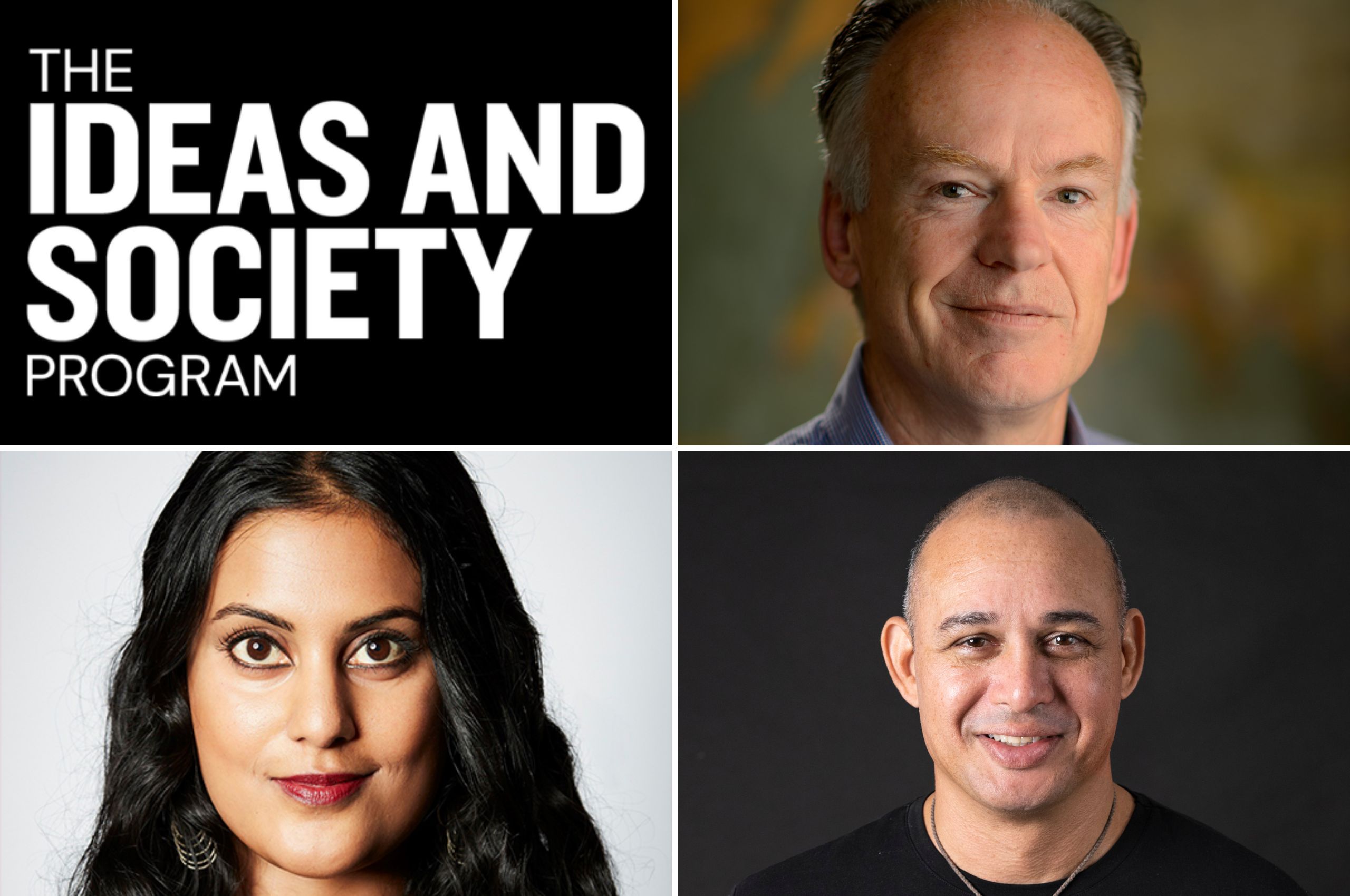
Finally, on 24 October, the Ideas and Society series is presenting Reflections on the Referendum for an Indigenous Voice to Parliament. Thomas Mayo, a leader of the campaign for the Voice and the author of Always Was, Always Will Be, will be joined by Dr Shireen Morris, who worked closely with Noel Pearson during the campaign and is the author of Broken Heart: A True History of the Voice Referendum, which was published by the La Trobe University Press in August. Julie Andrews will introduce the discussion, which will be facilitated by Professor Mark McKenna from the University of Sydney. You can register here.
In closing
As you can see, it’s been another busy month at La Trobe as we enter the final weeks of teaching for Semester 2.
I’d also like to remind you that October is Golden Lanyard Staff Giving month at La Trobe. I encourage you to get involved and support scholarships for students from disadvantaged and diverse backgrounds. The Golden Lanyard program is one of the most successful staff giving schemes in Australia and has supported more than 85 scholarships over the last 10 years.
If you already contribute to the Golden Lanyard program, thank you! If you have yet to contribute, I’d encourage you to do so. Every gift, of whatever size, is greatly appreciated and adds up to big impacts in the lives of those students who receive scholarships.
Best wishes,
Theo